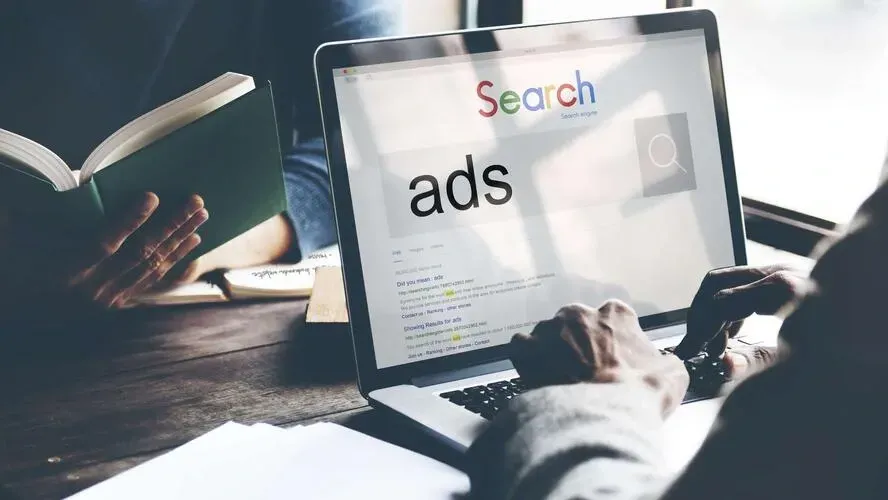Online advertising is a booming industry that continues to expand, with projections indicating that digital ad revenue will exceed $700 billion by 2025!
A major player in this sector is Google, which is renowned for its Google Ads and AdSense platforms.
AdSense alone boasts more than 2 million publishers and generates over $146 billion in revenue.
However, AdSense isn't the only option available to content creators.
There are numerous AdSense alternatives, and in this article, we will explore some of them.
What Is Google AdSense and How Does It Work?
Google AdSense is an advertising program by Google that allows website owners to earn money by displaying targeted ads on their sites.
Companies pay Google to advertise through AdSense, and you, as the content creator, earn a share of the revenue by displaying these ads on your blog, channel, or website.

To earn money with Google AdSense, your website must first be approved by Google.
The approval criteria are not disclosed, but if your site meets the program's policies, you can apply. The only known requirement is that applicants must be over 18.
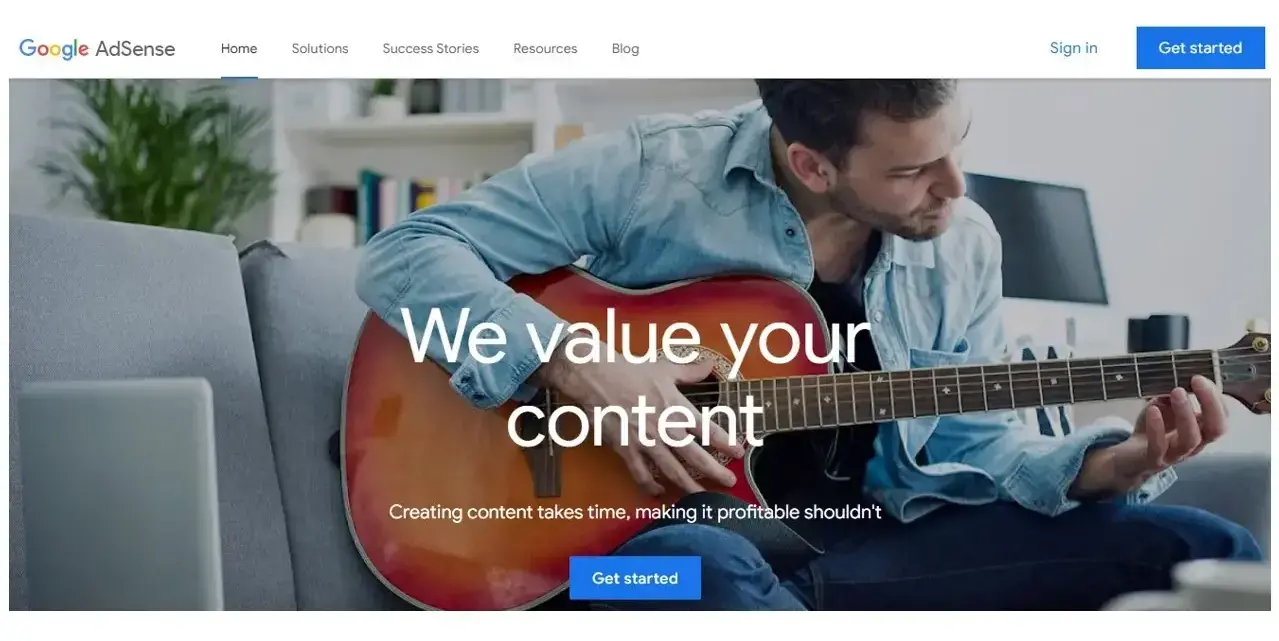
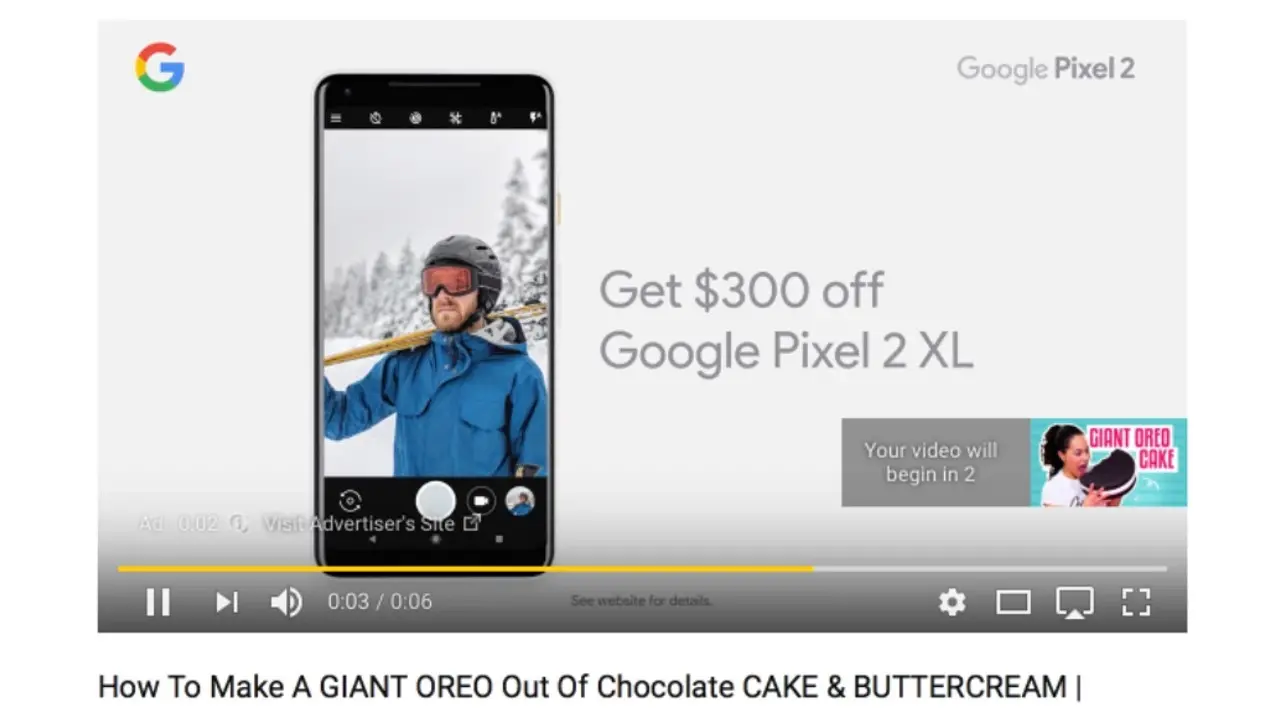
Understanding Ad Metrics: Key Performance Indicators for Success
To measure the success of your ad monetization efforts, it's crucial to track key performance indicators (KPIs).
Here are the most important ad metrics to understand:
Click-Through Rate (CTR): This metric shows the ratio of clicks to impressions, indicating how often people click on your ads. A higher CTR means your ads are engaging and relevant.
Cost Per Click (CPC): The earnings you receive each time someone clicks on your ad. Monitoring CPC helps assess the profitability of your ad campaigns.
Cost Per Thousand Impressions (CPM): The amount advertisers pay for 1,000 ad impressions. This metric is crucial for evaluating the value of display ad campaigns.
Return on Investment (ROI): Measures the profitability of your ad campaigns by comparing generated revenue to the cost of running the ads. A positive ROI indicates a successful campaign.
Conversion Rate: The percentage of users who complete a desired action (e.g., making a purchase) after clicking on your ad. A higher conversion rate indicates effective ad performance in driving desired outcomes.
Bounce Rate: The percentage of visitors who leave your site after viewing only one page. A high bounce rate may suggest that your landing page or ad content needs improvement.
Viewability Rate: The percentage of ads that are actually seen by users. Higher viewability rates suggest better ad placements and increased chances of engagement.
Engagement Rate: Measures user interactions with your ads, such as likes, shares, and comments. High engagement rates indicate your ads are resonating with your audience.
Ad Spend: The total amount spent on your ad campaigns. Tracking ad spend helps manage your budget and optimize ad strategies.
Lifetime Value (LTV): The projected revenue from a customer over their entire relationship with your business. Understanding LTV helps assess the long-term success of your ad efforts.
Why Should You Consider Adsense Alternatives?
Relying on a single ad network for visibility in the fast-paced world of SEO and digital marketing can be limiting.
To enhance their reach and income potential, many marketers diversify their strategies by using multiple platforms to promote their products and services.
While Google AdSense is a popular choice due to its vast network and integration with Google services, it is not without its drawbacks.
Some marketers turn to AdSense alternatives for higher CPM rates, advanced features, and greater flexibility.
Here are some of the disadvantages of Google AdSense:
Rigorous Approval Metrics: AdSense has strict, often undisclosed requirements. If you're not approved, consider other programs with more lenient criteria.
Revenue Share: Google AdSense shares around 68% of ad revenue with publishers. While this is relatively high, other programs might offer a better rate if you produce high-quality content and maintain steady traffic.
Limited Ad Customization: AdSense offers limited ad customization. Other programs provide more options for size, font, themes, and elements, giving you greater control over ad appearance on your site.
Ad Restrictions: AdSense has strict rules on monetizable content, limiting ad display on certain types. Alternatives often have more lenient policies, allowing a broader range of content.
Account Suspension Risk: AdSense often suspends accounts for policy violations without clear explanations or warnings, posing a significant risk for publishers relying on it for revenue.
Top 15 Best Adsense Alternatives
Here are the top ten best AdSense alternatives that are available today:
1. Media.net
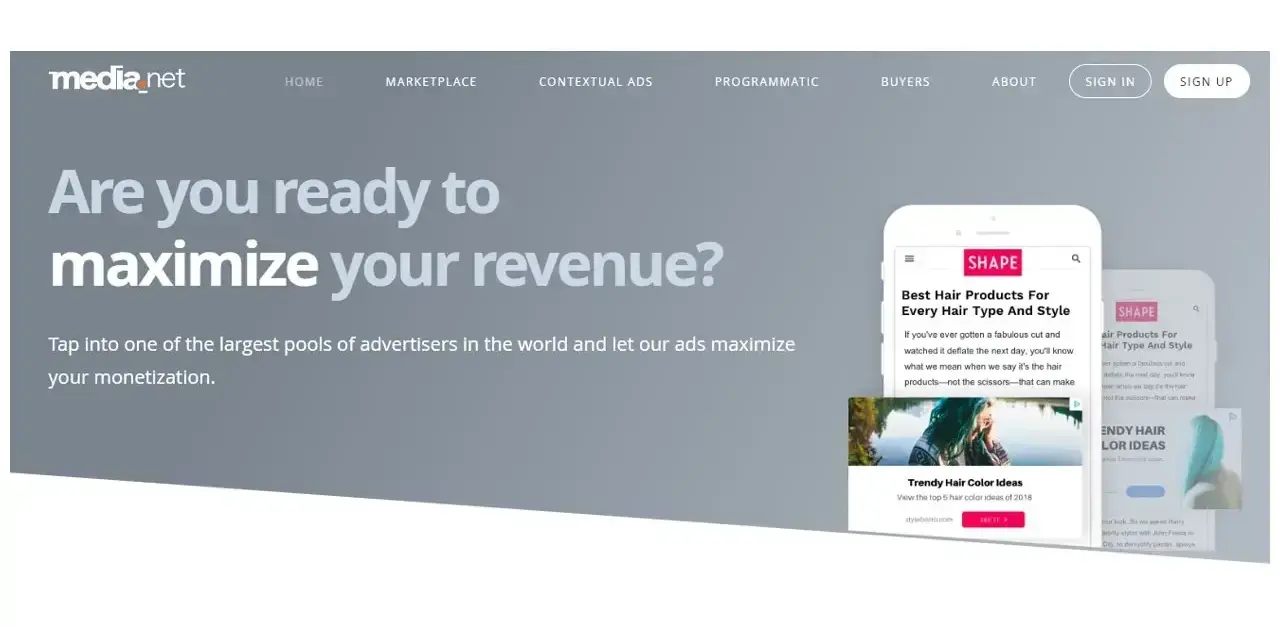
Website link: https://www.media.net/
Minimum Payout: $100
Payout Schedule: 30 days after the end of each month.
Set up fees: None
Media.net is a popular alternative to AdSense, originally created by Yahoo and Bing.
It's now independently owned and requires an invitation to join.
Media.net displays text and video ads relevant to your page's content.
You can create custom ads or leave it up to Media.net to do this and figure out what works best for you.
Pros
Cons
2. Monumetric
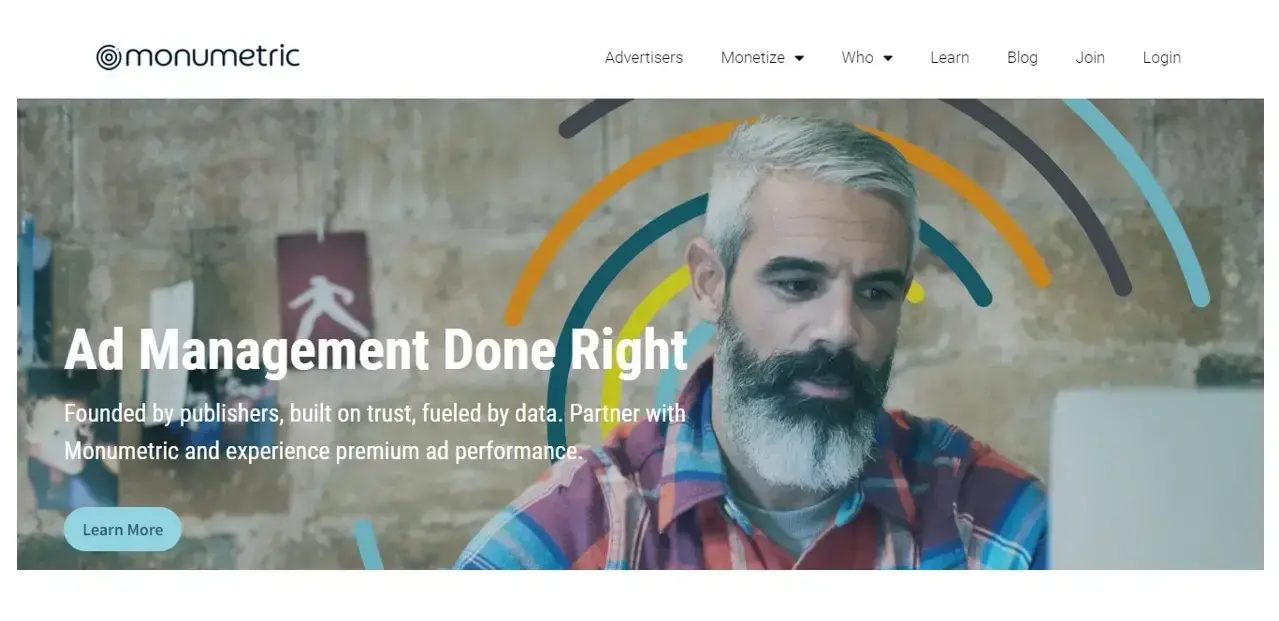
- Website link: https://www.monumetric.com/
- Minimum Payout: $10 via PayPal or direct deposit.
- Payout Schedule: 60 days after the end of the month.
- Setup fees: $99 for pages with 80,000 views and lower
With Monumetric, you profit by setting up ad inventory on your site, which the program then fills with the highest CPM (cost per thousand) offers.
It displays high-quality, targeted ads relevant to your page content.
You can however choose not to display ads from companies you dislike.
Monumetric uses a cost-per-impression model, paying you when people view your ads, not just click them.
Pros
Cons
3. PropellerAds
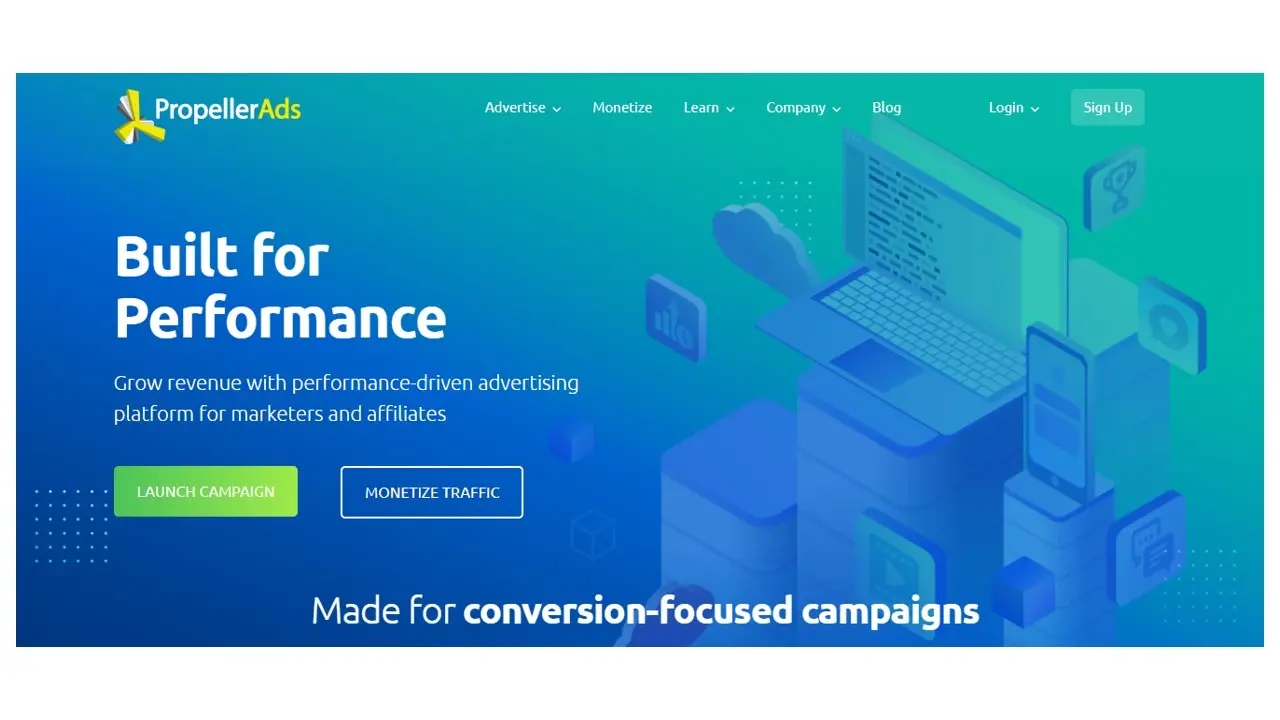
- Website link: https://propellerads.com/
- Minimum Payout: $5
- Payout Schedule: Weekly
- Set up fees: None
With over 9,000 active publishers PropellerAds helps both new and established sites monetize through various ad types.
It's known for popunder ads that appear behind the browser window and surface when the window is closed, though these ads may be too aggressive for some sites.
The platform also offers a variety of other ad types, including native ads, banners, and video ads for desktops.
Pros
Cons
4. Amazon Associates/Native Shopping Ads
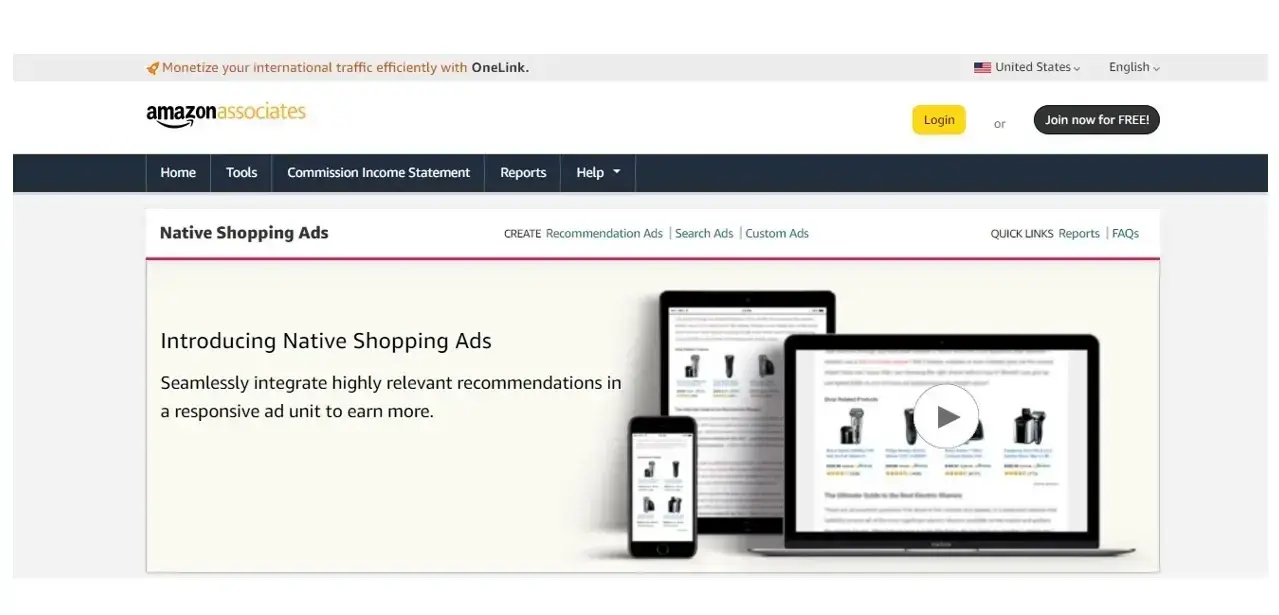
- Website link: https://affiliate-program.amazon.com
- Minimum Payout: $10
- Payout Schedule: 60 days after the end of the month.
- Set up fees: None
Amazon Associates is the affiliate program of Amazon and one of the most popular ones with over 900,000 affiliates.
You can earn commissions by including affiliate links to recommended products in your content or promotional emails.
The program also offers Native Shopping Ads that display contextual ads relevant to your site's content.
When visitors click these ads and make a purchase, you earn an affiliate commission.
Pros
Cons
5. Revcontent
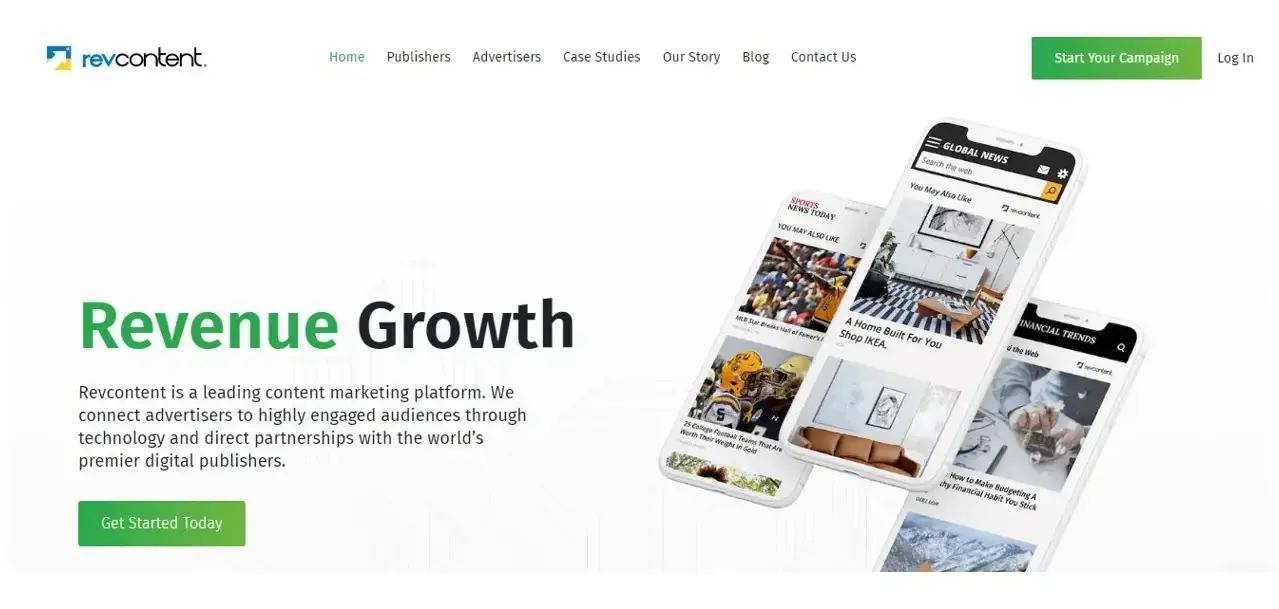
- Website link: https://www.revcontent.com/
- Minimum Payout: $50
- Payout Schedule: Monthly
- Set up fees: None
Revcontent is a selective native advertising program known for prioritizing quality over quantity, often rejecting many publishers.
For those accepted, it offers higher engagement rates.
The ads displayed are targeted and designed to blend perfectly with your page content.
Revcontent supports both CPC (cost per click) and CPM (cost per thousand impressions) models.
Pros
Cons
6. Ezoic
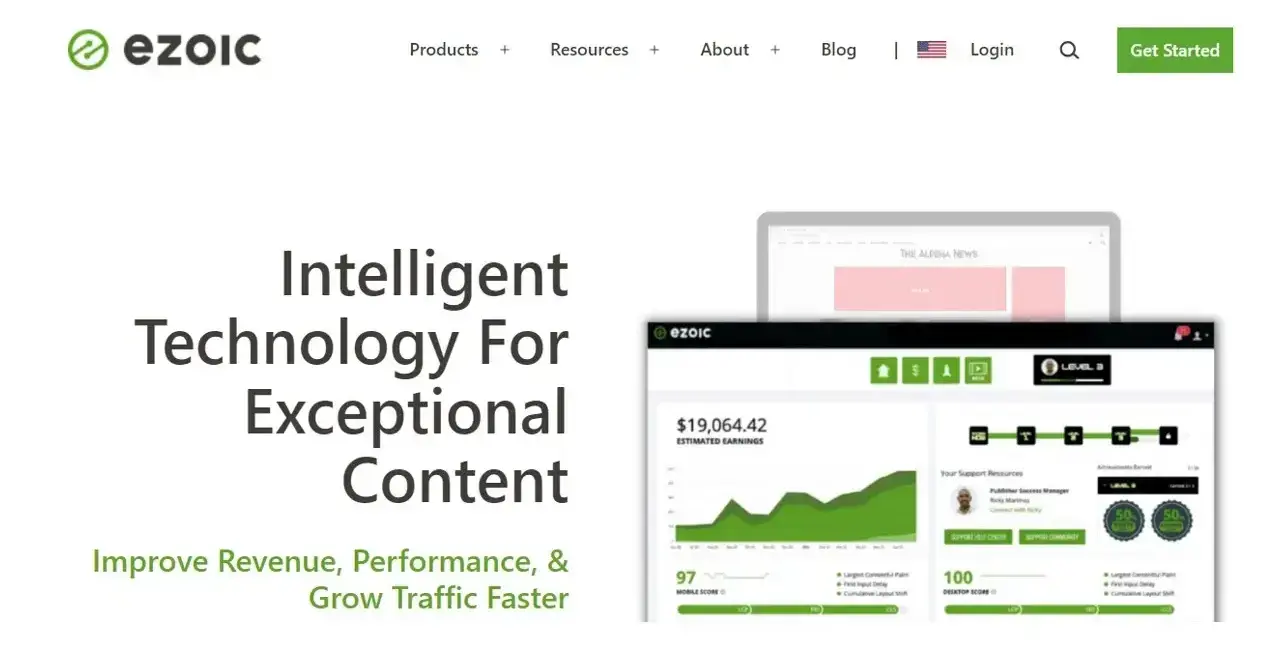
- Website link: https://www.ezoic.com/
- Minimum Payout: $20
- Payout Schedule: Monthly, with at least 10,000 views to qualify
- Set up fees: None
Ezoic is a Google-certified program that uses artificial intelligence to optimize ad placement on websites.
It offers a variety of tools to help maximize revenue, such as an ad layout tester, ad inventory, website speed calculator, etc.
Each user can create up to 100 ad units.
Ezoic is compatible with numerous platforms, including Cloudflare CDN and WordPress
Pros
Cons
7. Bidvertiser
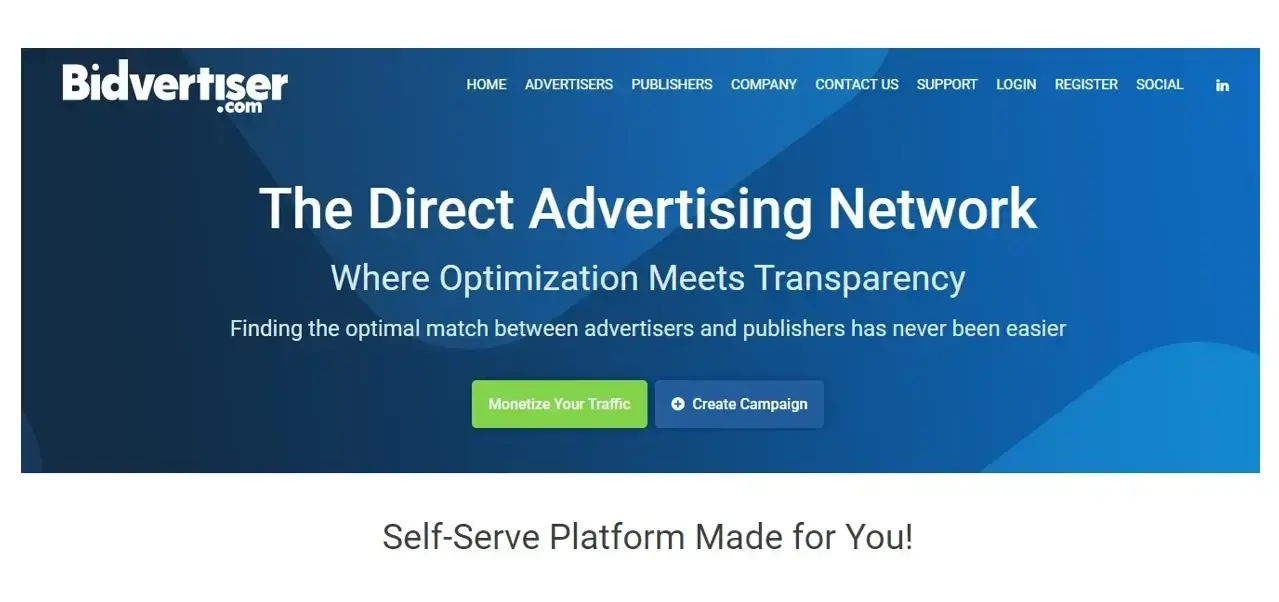
- Website link: https://www.bidvertiser.com/
- Minimum Payout: $10 for PayPal, $100 for checks, $500 for bank transfers.
- Payout Schedule: Monthly
- Set up fees: None
Bidvertiser offers various ad types, including display banners, popunders, sliders, and smartlinks.
The platform is home to at least 9,000 publishers.
Its main feature is a bidding system where advertisers place bids on ad placements, auctioning off your ad space to the highest bidder.
Pros
Cons
8. Infolinks
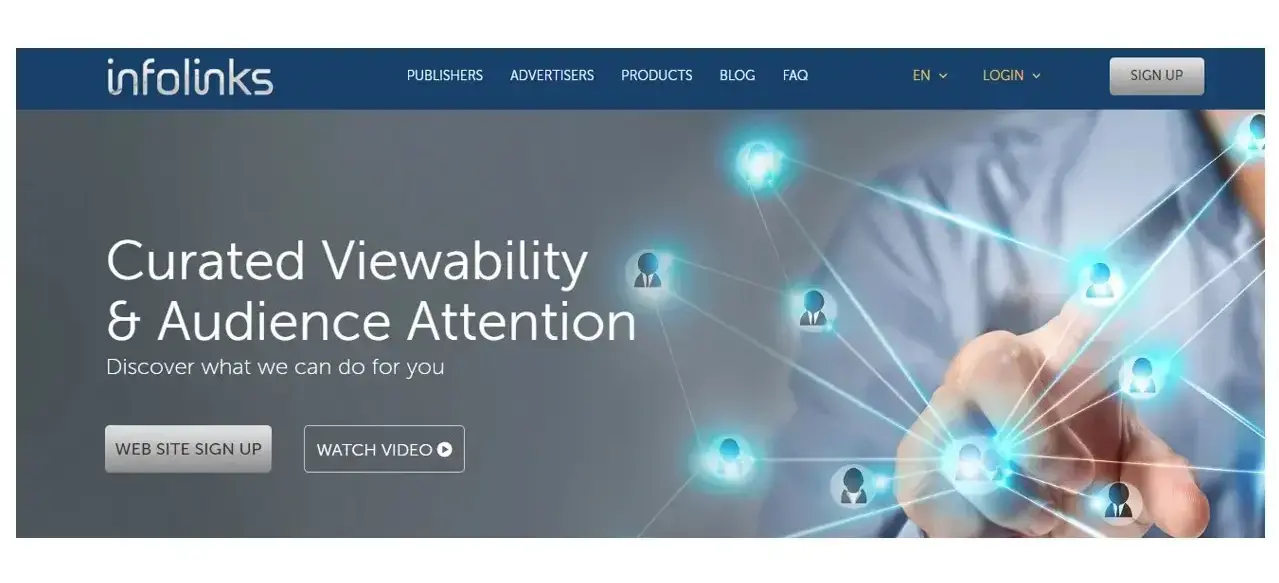
- Website link: https://www.infolinks.com/
- Minimum Payout: $50 for most payment methods, $100 for bank wire transfers.
- Payout Schedule: Every 45 days.
- Set up fees: None
InfoLinks specializes in in-text advertising, offering various ad types like InText, InFold, InScreen, InTag, and InFrame,
These ad types allow you to choose from both aggressive and more subtle options
It automatically pairs ads with relevant text in your blog by searching for keywords. When visitors hover over these keywords, a related ad appears.
Infolinks actively supports over 8,000 publishers.
Pros
Cons
9. Sovrn // Commerce
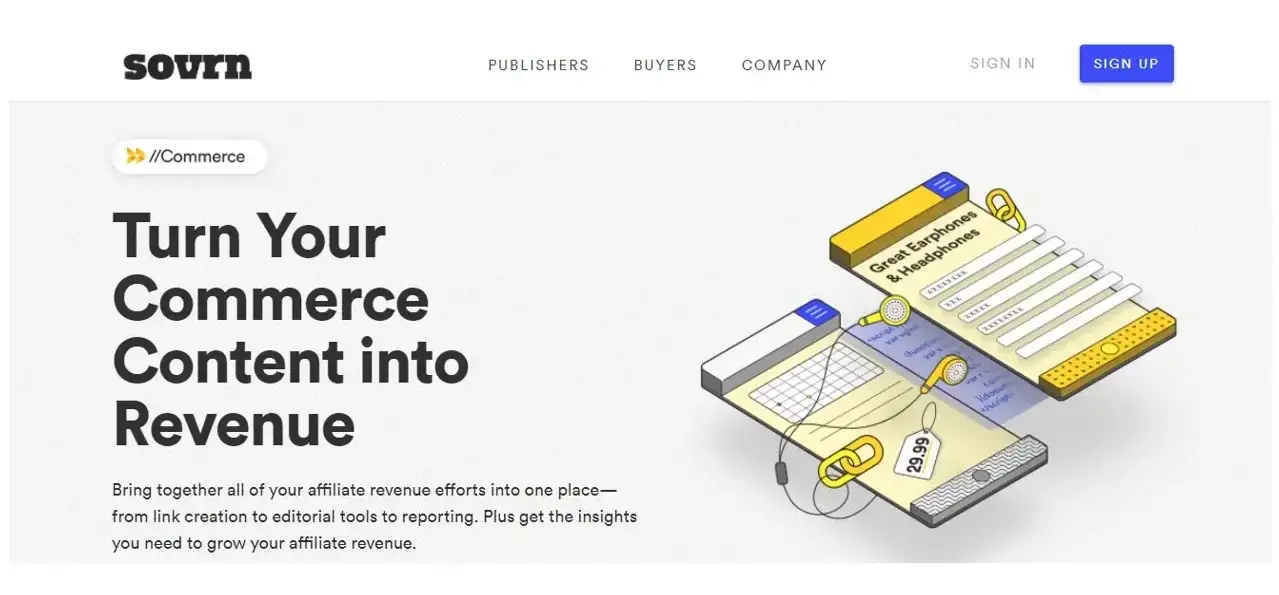
- Website link: https://www.sovrn.com/commerce/
- Minimum Payout: $25
- Payout Schedule: Every 45 days.
- Set up fees: None
Sovrn // Commerce, formerly known as VigLink, monetizes your content by automatically inserting contextual advertising links.
It links to publishers who bid the highest in the program and automatically adds affiliate links to products already mentioned on your site.
Sovrn exclusively supports the CPM (cost per thousand impressions) model. It currently serves more than 600,000 publishers.
Pros
Cons
10. Taboola Native Advertising
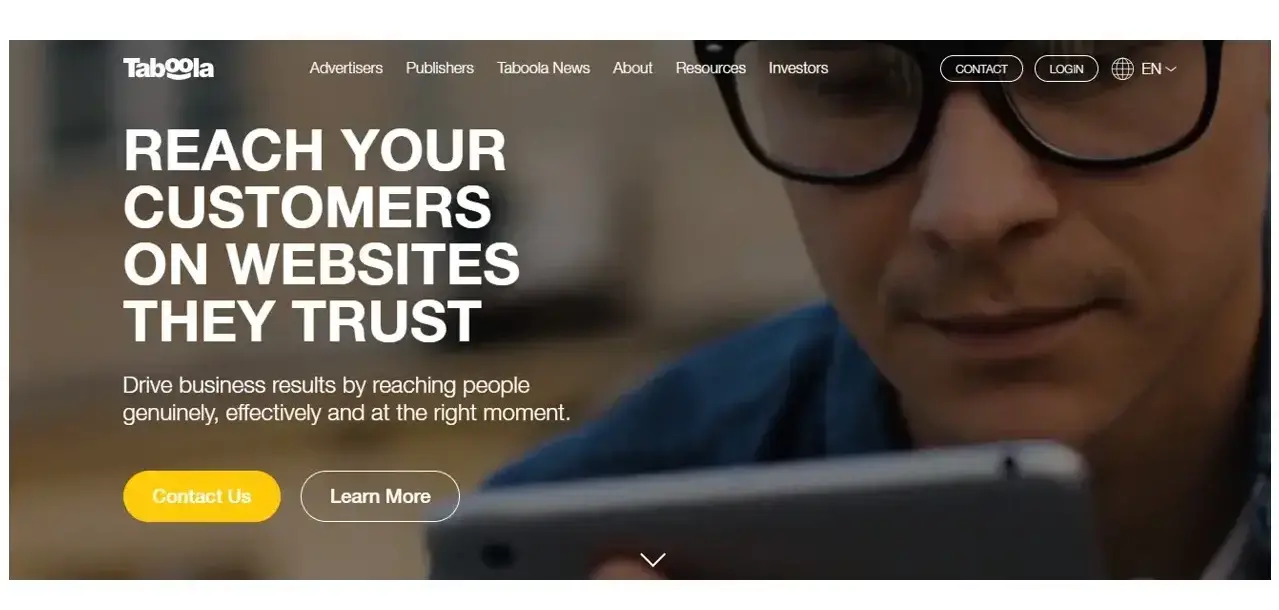
- Website link: https://www.taboola.com/
- Minimum Payout: $50, via Payoneer
- Payout Schedule: Monthly; with at least 500,000 views to qualify
- Set up fees: None
Taboola Native Advertising lets you monetize your website by displaying article suggestions after your content.
Common on news websites, Taboola partners with major media companies, though the articles are often considered clickbait.
If this doesn't bother you, it's a good option.
The program also allows for various ad formats, video embedding, personalization controls, and keyword filtering.
Pros
Cons
11. AdThrive
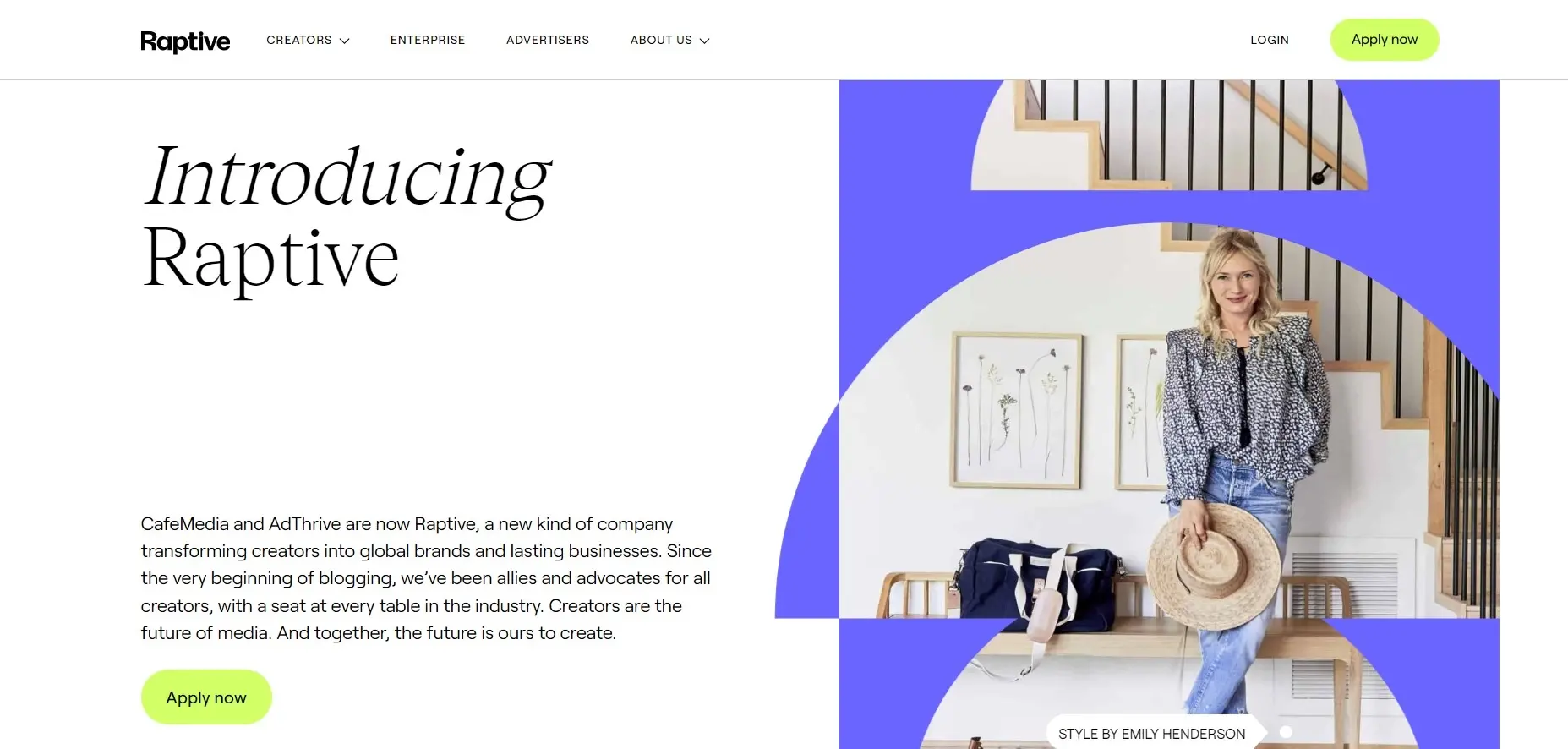
- Website link: https://www.adthrive.com/
- Minimum Payout: $25
- Payout Schedule: 45 days after the end of the month.
- Set up fees: None
AdThrive focuses on premium ad optimization for content creators and bloggers.
It offers high-quality ad placements, enabling publishers to achieve higher RPMs (Revenue Per Mille).
The platform also provides robust analytics and reporting tools to help track performance and earnings.
Pros
Cons
12. Mediavine
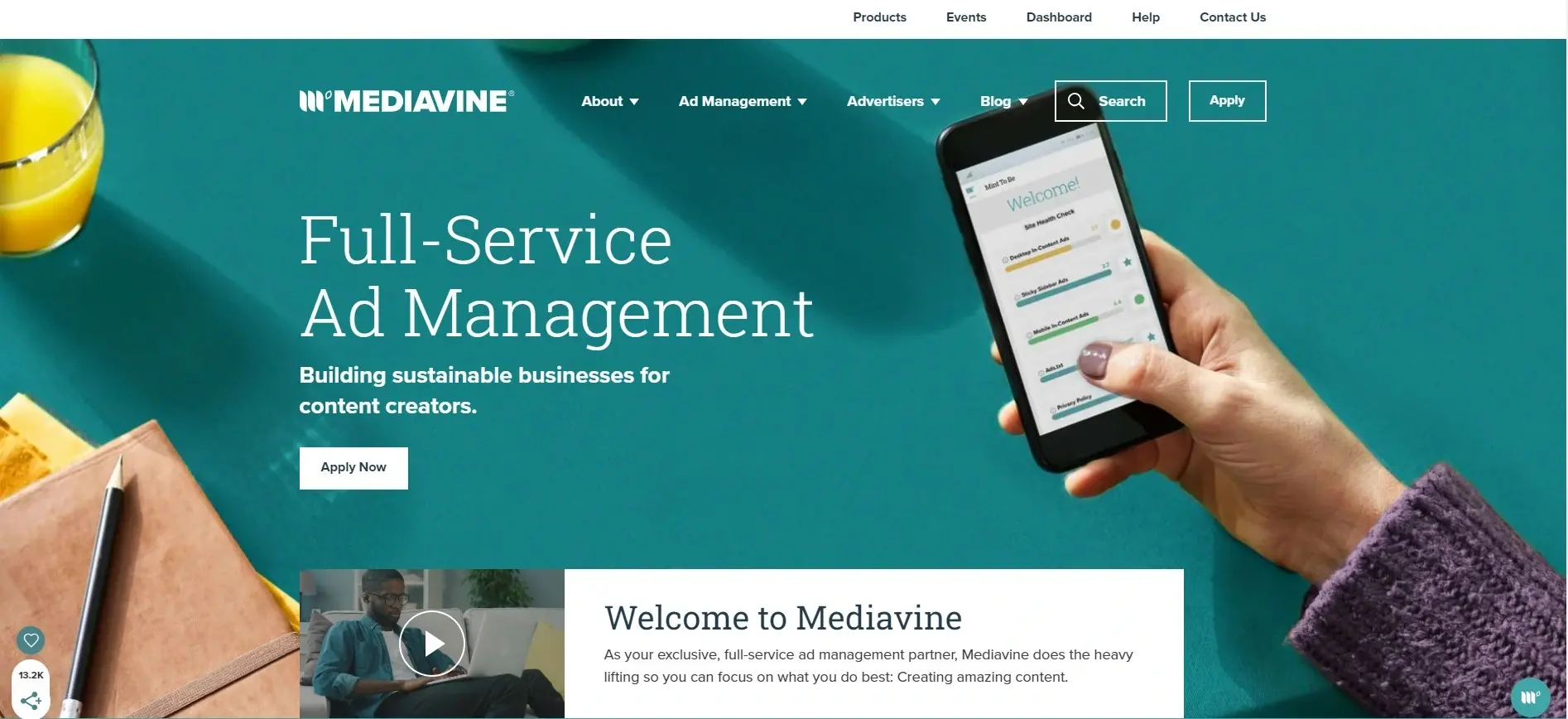
- Website link: https://www.mediavine.com/
- Minimum Payout: $25
- Payout Schedule: 65 days after the end of the month.
- Set up fees: None
Mediavine provides comprehensive ad management services for bloggers and content creators, specializing in optimizing ad revenue and delivering high-quality ads.
The platform supports multiple ad formats, including video and native ads, and prioritizes website performance and speed.
Pros
Cons
13. BuySellAds
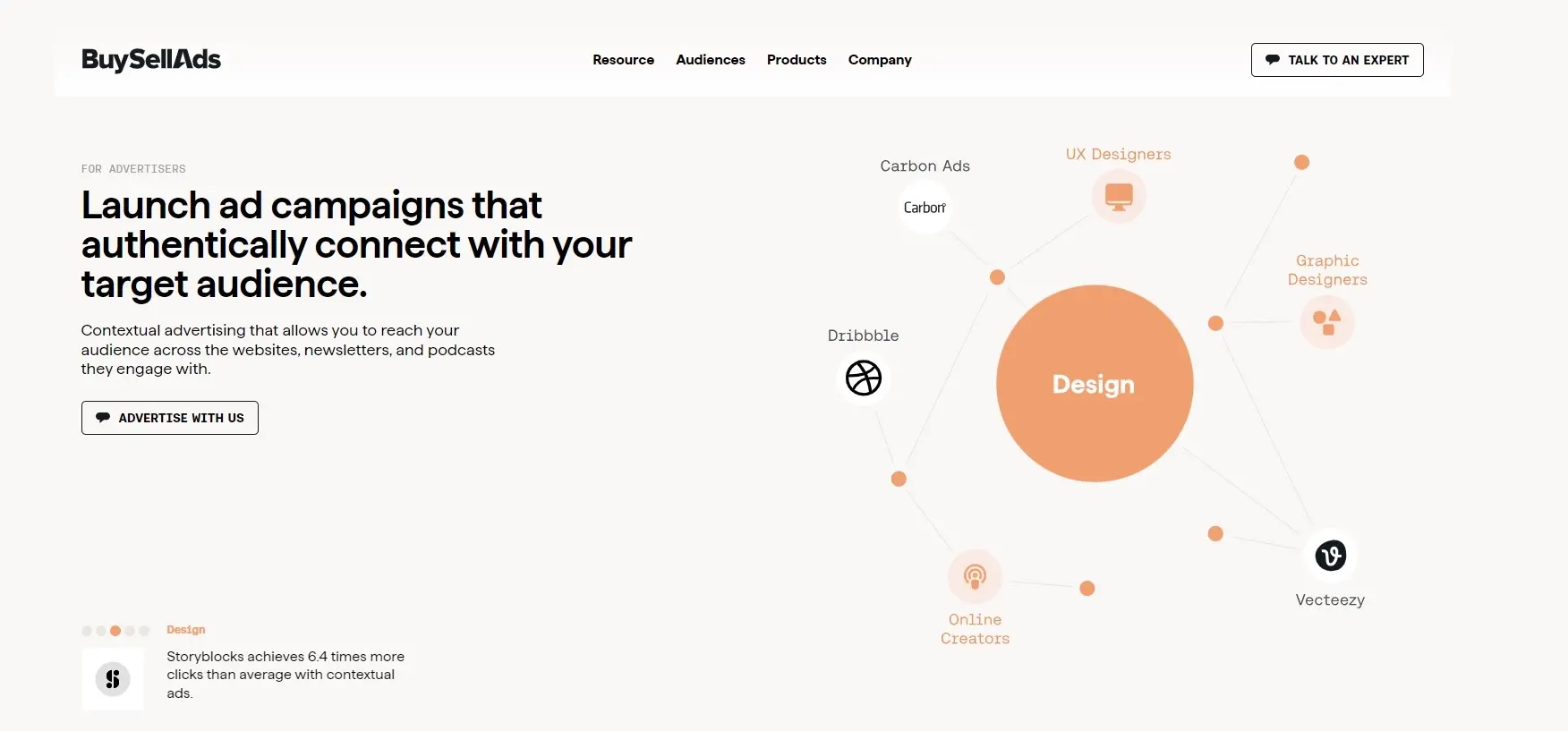
- Website link: https://www.buysellads.com/
- Minimum Payout: $20
- Payout Schedule: Monthly, via PayPal or check.
- Set up fees: None
BuySellAds connects advertisers directly with publishers, offering a variety of ad formats, including display, native, email, and sponsored content.
The platform offers transparent pricing and control over ad placements, allowing you to choose the best ads for their audience.
Pros
Cons
14. SheMedia
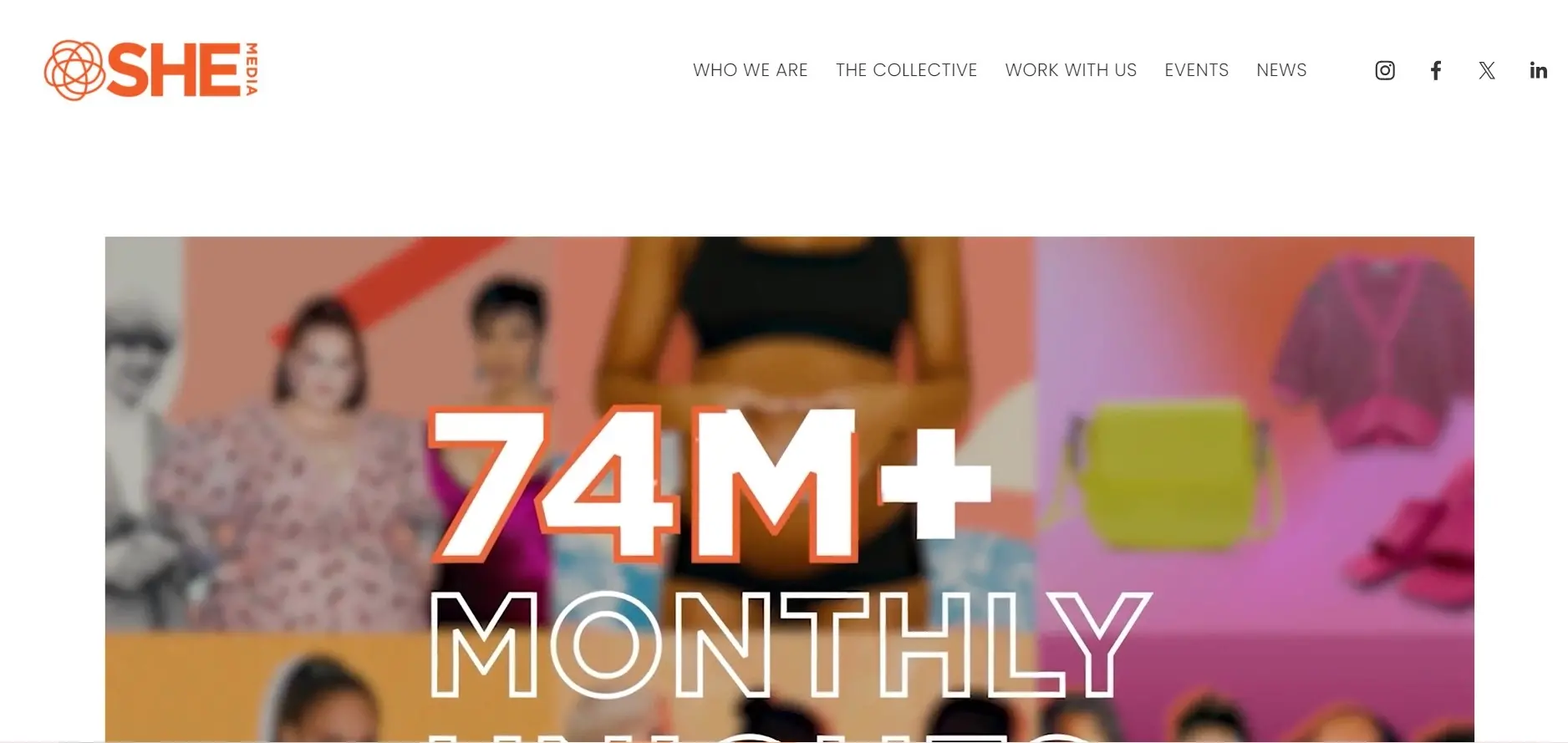
- Website link: https://www.shemedia.com/
- Minimum Payout: $20
- Payout Schedule: 60 days after the end of the month.
- Set up fees: None
SheMedia is a top ad network specializing in women’s lifestyle content, offering a range of ad solutions such as display, video, and sponsored content.
It delivers high-quality, brand-safe ads and additional revenue opportunities through sponsored content.
With dedicated support and resources, SheMedia ensures that publishers can maximize their ad revenue while maintaining a positive user experience.
Pros
Cons
15. Newor Media
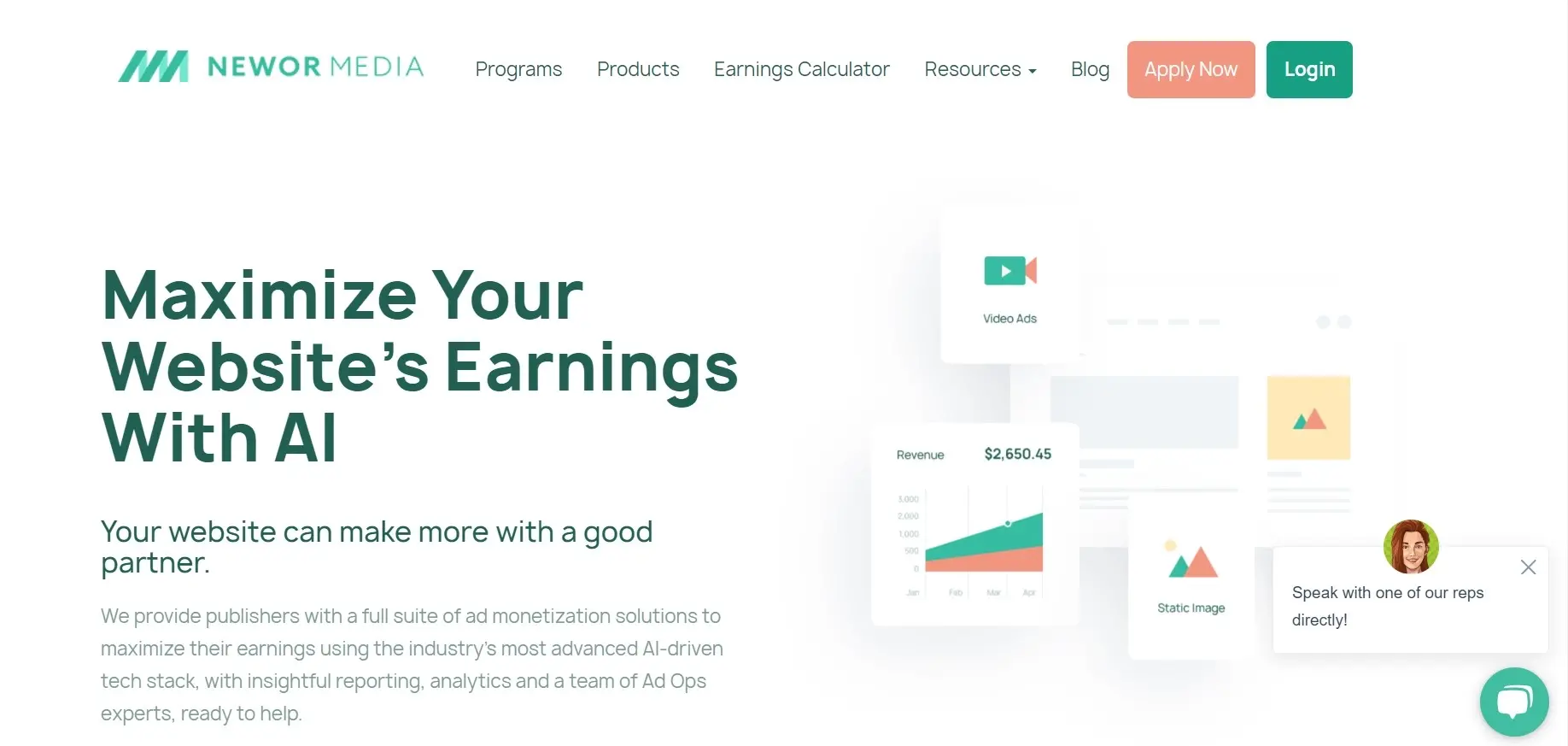
- Website link: https://www.newormedia.com/
- Minimum Payout: $25
- Payout Schedule: 45 days after the end of the month.
- Set up fees: None
Newor Media provides programmatic advertising solutions, using machine learning to optimize ad placements and maximize revenue for publishers.
You are more well equipped to achieve optimal results with your ad inventory thanks to the program’s advanced machine learning tools.
The platform supports various ad formats, including display, video, and native ads.
Pros
Cons
Aside from these 15 alternatives, there are many others that are also available for digital marketers. Here is a list of 10 additional programs:
Adversal – Is a self-serve program where publishers buy ads and decide on the ad's content and placement on their own.
AdRecover– Is used to target visitors that have ad blockers installed.
PopAds – Is a program that specializes in popunder ads, and it offers high flexibility and ad customization.
Skimlinks – Is a program that specializes in affiliate marketing and scans the text of your content to find appropriate links to other sites.
Playwire – Is a program that has a minimum traffic requirement of 500 000 views per month and is best for high-traffic blogs.
ylliX– Is a program with no traffic requirements, minimal payouts of $1, and is perfect for new publishers.
RevenueHits – Is a program that has no minimum traffic and is best for PPA or pay-per-action campaigns.
Setupad – Is a program that is best suited for bidding campaigns, and it has a minimum traffic requirement of 100,000 views per month.
Adbuff – Is an ad network that offers high CPM rates and supports both desktop and mobile ads, featuring a real-time bidding system and supports various ad formats, including display, video, and native ads.
Adsterra – Is an ad network known for its high fill rates and global coverage. It provides a wide range of ad formats, including popunders, banners, direct links, and push notifications.
The Future of Ad Monetization: Trends to Watch Out For
As the digital landscape continues to evolve, so does the world of ad monetization. Here are some key trends to watch out for:
AI and Machine Learning in Ad Placements: Advanced algorithms optimize ad placements in real-time, improving targeting and maximizing revenue.
Programmatic Advertising: Automated ad buying allows for more efficient placements, with real-time bidding enabling precise targeting.
Rise of Video Advertising: Video ads are becoming increasingly popular due to their engaging format and higher conversion rates, particularly on platforms like TikTok.
Native and Contextual Ads: Ads that blend seamlessly with content improve user experience and effectiveness, while contextual ads enhance relevance.
Personalized Advertising: Customized ads tailored to user preferences increase relevance, focusing on transparent, consent-based approaches.
Ad Monetization on Emerging Platforms: New platforms like podcasts and connected TVs offer unique ad opportunities and innovative interactive ads.
Blockchain Technology: Blockchain enhances transparency and security in ad transactions, reducing fraud and giving publishers more control.
Final Remarks
All-in-all, there are many excellent AdSense alternatives, some even surpassing Google's program, especially for small businesses.
Consider using multiple advertising programs alongside AdSense to diversify your income.
Don't settle for just one; explore as many options as you can to find the perfect match or combination that works best for you.
Frequently Asked Questions
Can I use hosting for WordPress for an ecommerce site?
Yes, of course. In fact, the platform has some of the best online stores and a range of payment processor plugins on the market.
How customizable is my ecommerce store?
This depends on the eCommerce tool you use. For example, Magento is 100% customizable, and you can amend just about every aspect. Shopify on the other hand has far fewer customization options.
Can I migrate my store to Verpex?
Yes; these days, it’s a fairly straightforward process to migrate your store in full. Simply get in touch with one of our service agents and they can migrate the store for you.
How can I increase the click-through rate (CTR) of my ads?
You can increase CTR by optimizing ad placement, using compelling ad creatives, and ensuring ads are relevant to your site's content.
How do ad blockers impact ad monetization, and what can I do about it?
Ad blockers can greatly reduce ad revenue by blocking ads from being displayed. To counter this, consider using ad-block recovery tools, offering ad-free experiences for a fee, or using native ads that are less likely to be blocked.

I've been navigating the web hosting waters for years now. As the Chief Editor at Verpex, I team up with some awesome writers to dish out the good stuff on hosting. Got a Master's in Journalism, so I always have an eye out for quality. Whether you're just dipping your toes or you're a seasoned surfer, I'm here to make everything web hosting feel like a breeze
View all posts by Julia Lozanov















